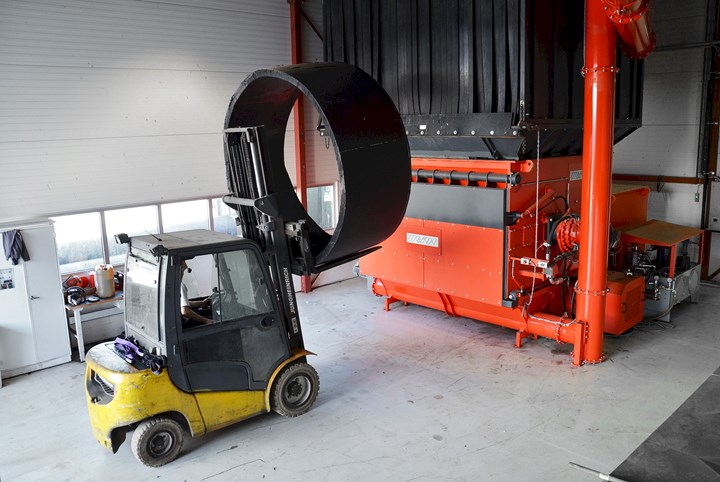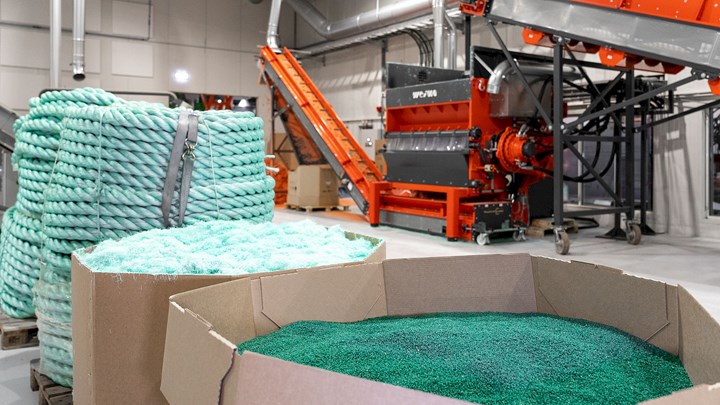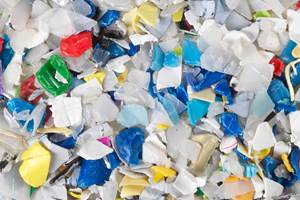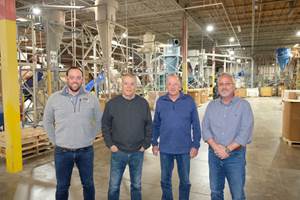WEIMA Exec's Take on Current Status of Plastics Recycling
As part of a series of industry interviews leading-up to K-2022, VDMA chats with WEIMA’s sales director.

Just before Earth Day last month, I reported on a progressive recycling initiative in my new hometown, Charlotte, N.C., whereby PP take-away containers at the Envision Charlotte Innovation Barn are being recycled with the help of a table-top shredder and new granulator supplied by recycling equipment suppliers WEIMA America. Said WEIMA North American marketing manager Audrey Brewer, “Our company’s core values truly align with what Envision Charlotte is doing here, and we knew we could make the process easier by placing a granulator in their plastics lab. The impact of this project will be monumental and far-reaching, even beyond Charlotte. Other cities are modeling their own recycling programs by learning from what Envision Charlotte is doing. We're extremely proud of this partnership and excited to see where it's headed.”
More recently, we were contacted by VDMA, Germany’s plastics and rubber machinery association where a team, including VDMA consultant Ina Vettkoetter, interviewed Patrick Henzler, sales director at WEIMA Machinenbau, as part of a series of industry interviews in the lead-up to K 2022 trade fair. Take a look at his assessment and outlook on plastics recycling.
How is the recycling business developing at WEIMA?
Henzler: Very well actually, because the importance of recycling is increasing, as environmental awareness is increasing, because resources are limited and plastics being a necessity. This means that more and more recyclate has to be used. With our WEIMA shredding machines, we are at the beginning of the recycling chain and make an important contribution.
In post-consumer recycling, we have seen a trend of steadily increasing processing volumes over the past few years. We have adapted our machines to enable higher throughputs and still be cost-efficient. WEIMA shredders are also characterized by high accessibility for maintenance purposes and variable drive technologies. With more than 1200 machines delivered annually, we can draw on an exceptional wealth of experience.
How well does the procurement of the plastic waste work?
Henzler: Procurement starts with the collection of recyclables. Due to the major importance of our export business, we are present in many countries and see very different waste system at varying development stages. In some cases, these are only rudimentary. Even the waste systems in Europe, including Germany, are not yet at an optimum level however; in addition, even if they have already reached an advanced stage of development, some of the subsequent steps are still underdeveloped.
In which areas are problems still a factor?
Henzler: In the sortability of materials for example--the possibilities for cost-efficient plastic recycling increase when the material is sorted. If you have laminated multilayer films with an additional paper or aluminium layer for example, recycling becomes so expensive and complex that it is of no interest to potential processors. But recycling must also be profitable. Technologically, there are many possibilities, and new options are constantly being developed. But if the costs explode, no one will do it, which is one reason why a lot of valuable plastic waste is still simply incinerated in Germany.

VDMA has over 200 member companies, covering over 90% of the industry's production in Germany. Ten percent of its member companies come from Austria, Switzerland and France. German member companies represent a turnover of 7 billion euros in core machinery and 10 billion euros including peripheral technology. Every fourth plastics machine manufactured worldwide comes from Germany in terms of value; the export quota is 70%. Ulrich Reifenhäuser, managing partner of Reifenhäuser GmbH & Co KG, is the current chairman of the trade association.
Related Content
Building a Future With Sustainable Compounds
With roots in recycling, Star Plastics produces engineering thermoplastic compounds to meet performance and environmental goals.
Read MoreNPE2024 Wrap-Up: Sustainability Dominates Show Floor News
Across all process types, sustainability was a big theme at NPE2024. But there was plenty to see in automation and artificial intelligence as well.
Read MoreLooking to Run PCR on a Single Screw? Here’s What to Keep in Mind
Just drop it in and mix it up? Sorry, there’s a lot more to it than that. Here is some of what you need to consider.
Read MoreEvolving Opportunities for Ambitious Plastics Recycler
St. Joseph Plastics grew from a simple grinding operation and now pursues growing markets in recycled PP, food-grade recycled materials, and customized post-industrial and post-consumer compounds.
Read MoreRead Next
Making the Circular Economy a Reality
Driven by brand owner demands and new worldwide legislation, the entire supply chain is working toward the shift to circularity, with some evidence the circular economy has already begun.
Read MorePeople 4.0 – How to Get Buy-In from Your Staff for Industry 4.0 Systems
Implementing a production monitoring system as the foundation of a ‘smart factory’ is about integrating people with new technology as much as it is about integrating machines and computers. Here are tips from a company that has gone through the process.
Read MoreFor PLASTICS' CEO Seaholm, NPE to Shine Light on Sustainability Successes
With advocacy, communication and sustainability as three main pillars, Seaholm leads a trade association to NPE that ‘is more active today than we have ever been.’
Read More


























